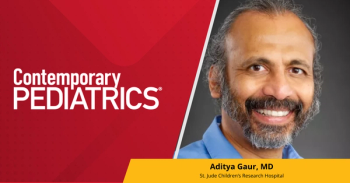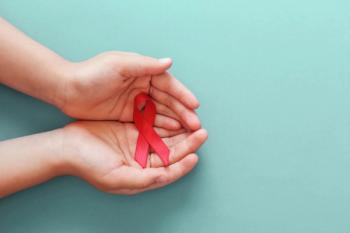
Dr Anthony Fauci talks COVID-19 at AAP conference
Dr Anthony Fauci speaks on "COVID-19: Public Health and Scientific Challenges" at the virtual 2020 American Academy of Pediatrics (AAP) National Conference & Exhibition
The 90th anniversary of the AAP's National Conference & Exhibition was celebrated with its first-ever virtual event. AAP president Dr Sally Goza opened the plenary session by introducing keynote speaker Dr Anthony S Fauci, director of the National Institute of Allergy and Infectious Diseases, and now not only a household name, but arguably the most trusted voice in medicine today.
Dr Fauci kicked off his talk with a concise history of COVID-19, explaining coronaviruses in general and reminding everyone that "coronaviruses go back decades and decades for us, and among other things, are responsible for the common cold."
He then dove into the beginnings of the current pandemic, which was first noted in humans in Wuhan, China in January. "Fast-forward to where we are now," Fauci soberly noted, "where the world has experienced 33 million cases and over 1 million deaths, with an end nowhere in sight," stating that "the world has not seen something like this since the pandemic of 1918." He discussed a myriad of trajectories of the virus in both Europe and the United States, noting the direct correlations between cases decreasing during periods of total and drastic shut-downs, and now, as the world is attempting to re-open schools and businesses, numbers ticking back up.
Symptoms, he reiterated, are very similar to clinical manifestations of influenza, with an unusual added symptom, "the peculiar loss of smell and taste that precedes the onset of respiratory symptoms." He conceded that the variants of this virus continue to be a head-scratcher. "In all my experience," Fauci observed, "I have never seen a disease range from asymptomatic to mild to fatal like this one." The most severe cases, Fauci said, can cause acute kidney injury, cardiac dysfunction, sudden death from congestive heart failure," italicizing that people with underlying conditions that include heart problems, chronic kidney disease, obesity, cancer, sickle cell anemia, hypertension, diabetes 1, and more are at much greater risk.
"Another troublesome aspect of this pandemic is its racial disparities," Fauci said. "Blacks, Hispanics, and Native Americans have an increased risk of getting infected, and if they do, they can be severe. The numbers are strikingly higher with these groups," in terms of both risk of infection and severity of illness.
Fauci also touched on, of course, multisystem inflammatory syndrome in children (MIS-C), which has more than 800 cases globally, and a median age of infection of 8 years old. While the death rate in children remains low, and children have less severe symptoms in general, Fauci did note that studies are reporting now that "older children seem to transmit the virus more efficiently than younger children." Finally, Fauci discussed post-viral syndromes that have been noted to affect people of all ages after they have had the virus. These include fatigue, malaise, shortness of breath, and "brain fog," an inability to focus and concentrate.
Fauci discussed the 2 noted therapies that are proving some success: remdesivir and dexamethasone, as well as convalesent plasma, monoclonal antibodies and antivirals.
And what about the latest status of vaccines? Fauci said, "By the end of the year, in November or December, we will have an answer as to whether we have a safe and effective vaccine. No guarantee, but we could start vaccinating people by the end of the year."
Fauci's talk was followed by a question-and-answer period, in which Dr Goza posed several questions coming in from the virtual pediatrician audience. One physician was worried about whether or not enough children will be included in clincial trials to assure a safe vaccine for them. Fauci explained that "the phase 3 trials of vaccines do not include children until you get a certain degree of safety, which will be known reasonably soon. At that point, a phase 1 trial in children would start, without too much of a delay."
An interesting question was posed to Fauci: What 3 actions could have changed the outcome of the pandemic? Laughing, Fauci responded, "It's almost an impossible question to answer. We could have known sooner, tested in abundance, and have the country act in a uniform way. But we have a large country, with 50 states and additional territories, and there is a tradition of individuality and states rights, which is why we have an uneven response to this pandemic. But we could have done better. I am not happy with the baseline infections that we have: retrospectively, you could always find a way to do things better."
Newsletter
Access practical, evidence-based guidance to support better care for our youngest patients. Join our email list for the latest clinical updates.






